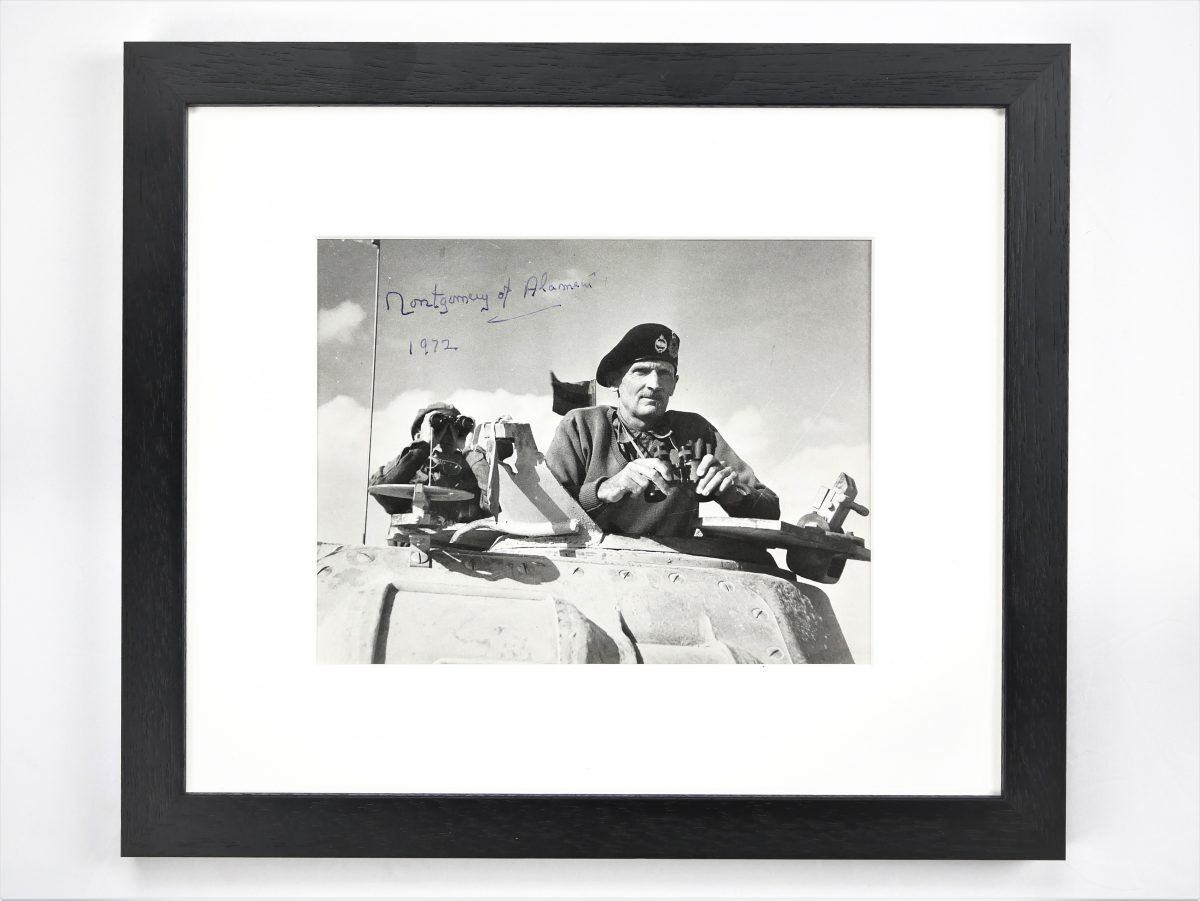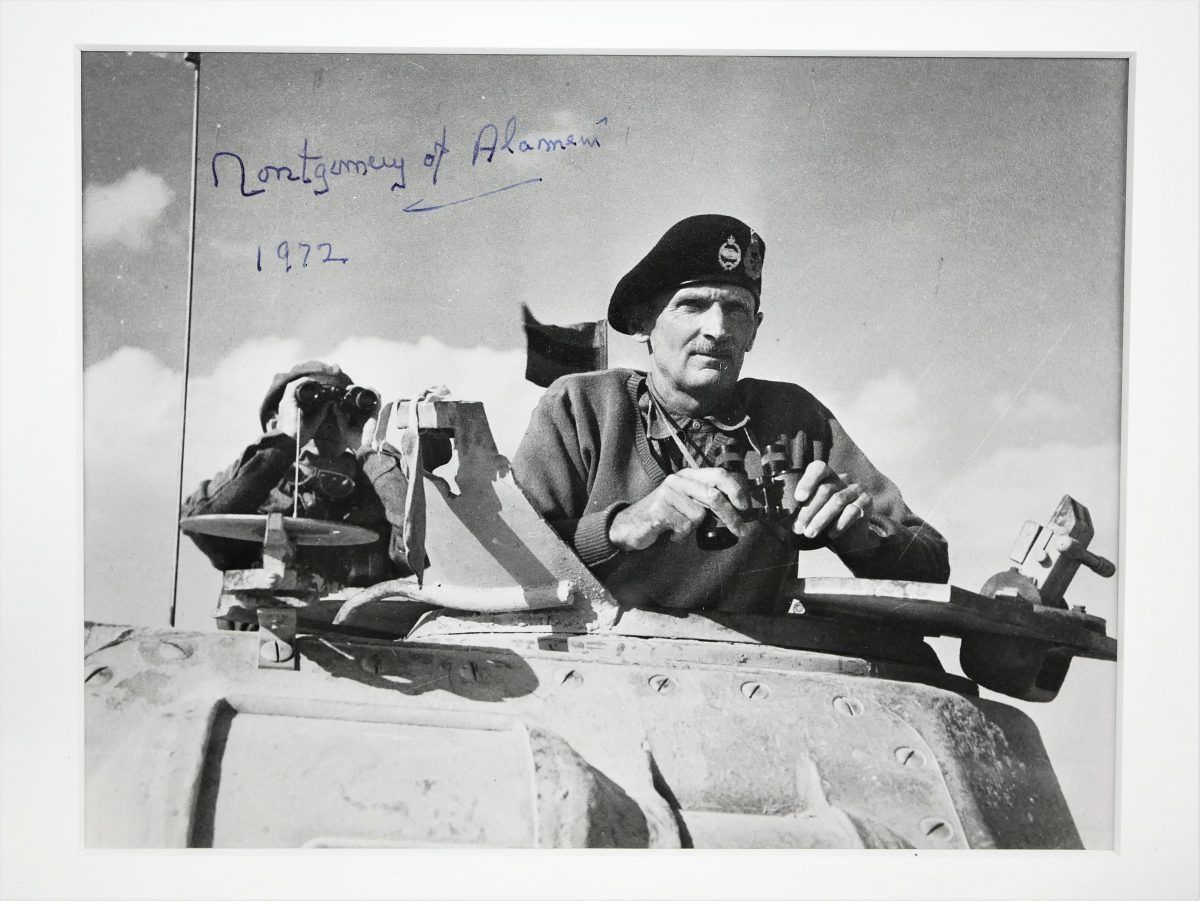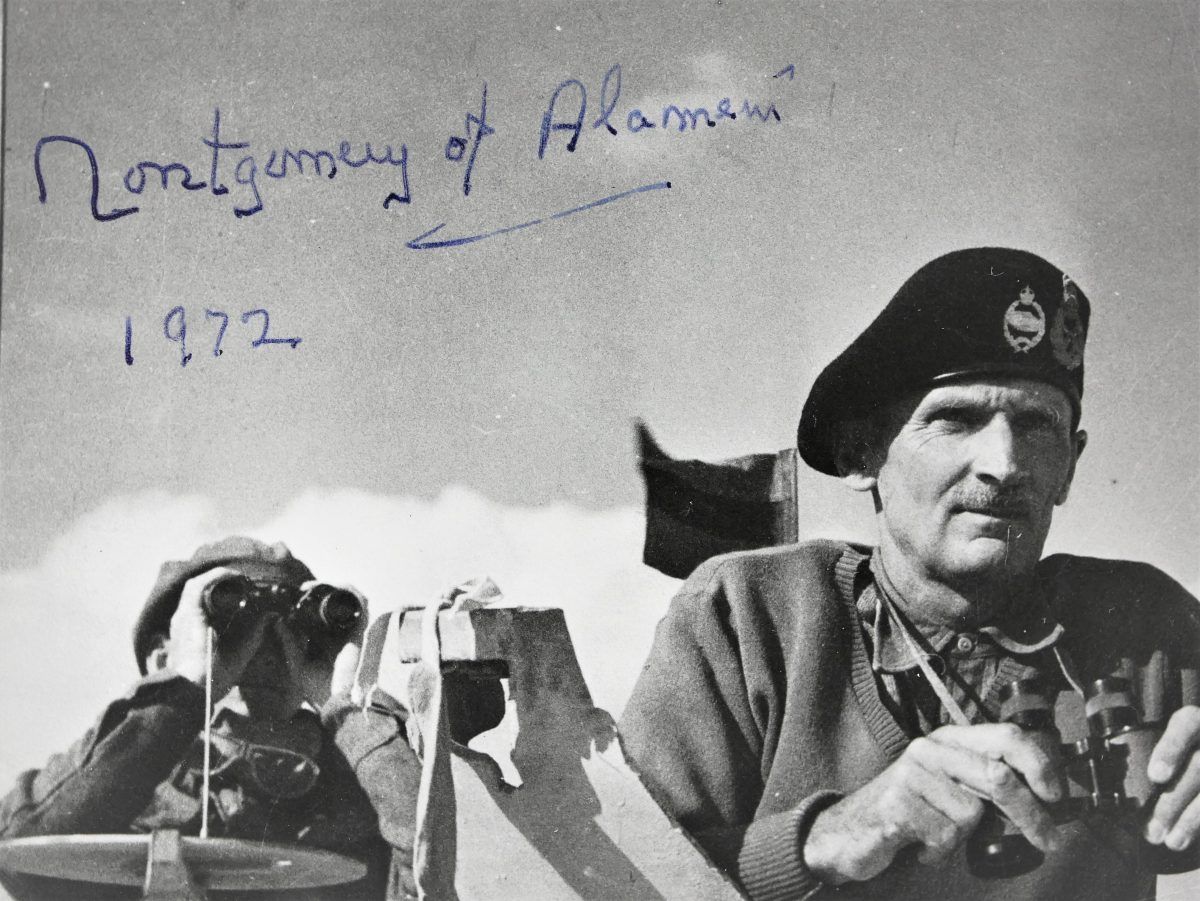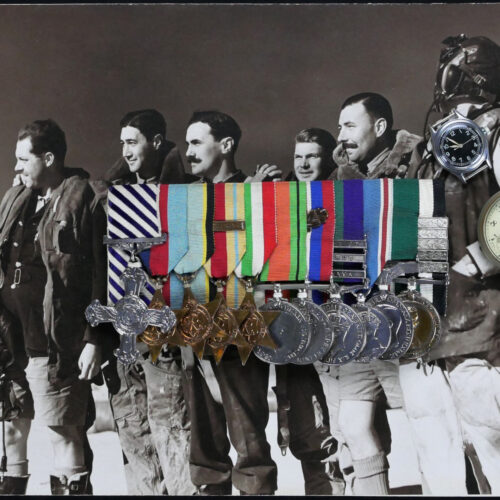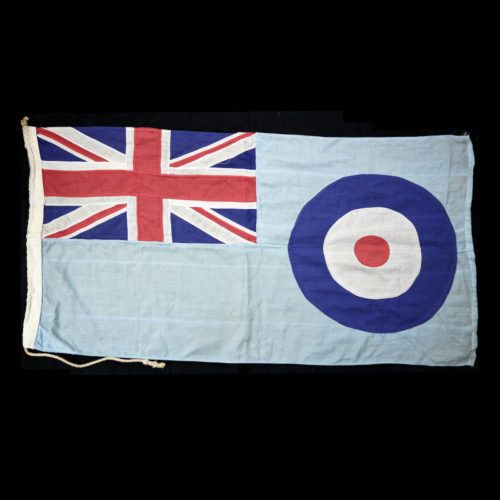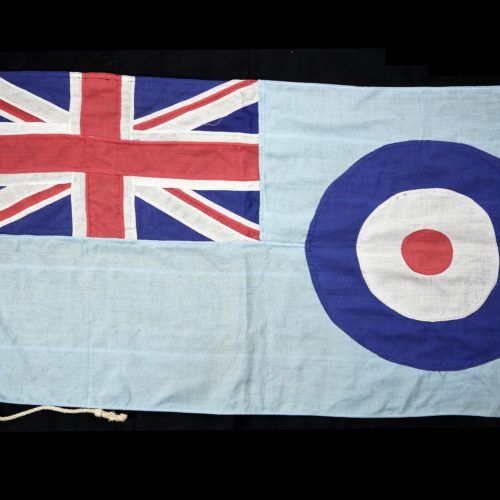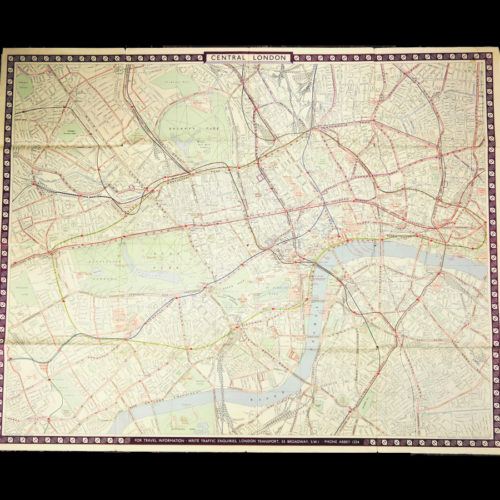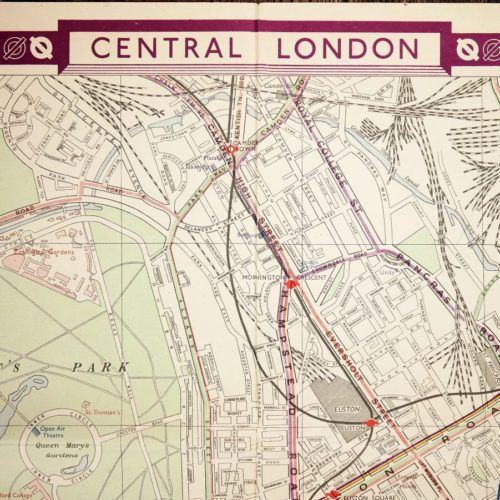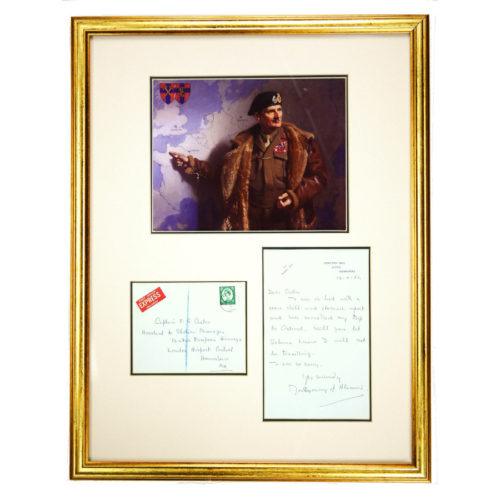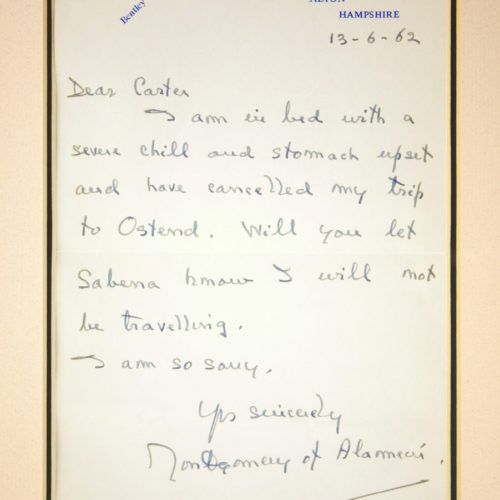A fabulous signed photograph of Field Marshal Bernard Montgomery in an iconic pose in the Western Desert.
The black and white signed photograph depicts “Monty” sitting in a tank turret with binoculars and his famous black “Tankers” General’s beret. Signed in ink “Montgomery of Alamein 1972”.
Montgomery of Alamein
Field Marshal Bernard Law Montgomery, 1st Viscount Montgomery of Alamein, KG, GCB, DSO, PC (17 November 1887 – 24 March 1976), nicknamed “Monty” and the “Spartan General”, was a senior British Army officer who fought in both the First World War and the Second World War.
He saw action in the First World War as a junior officer of the Royal Warwickshire Regiment. At Méteren, near the Belgian border at Bailleul, he was shot through the right lung by a sniper, during the First Battle of Ypres. He returned to the Western Front as a general staff officer and took part in the Battle of Arras in April/May 1917. He also took part in the Battle of Passchendaele in late 1917 before finishing the war as chief of staff of the 47th (2nd London) Division.
In the inter-war years, he commanded the 17th (Service) Battalion, Royal Fusiliers and, later, the 1st Battalion, Royal Warwickshire Regiment before becoming commander of the 9th Infantry Brigade and then General Officer Commanding (GOC) 8th Infantry Division.
During the Second World War, he commanded the British Eighth Army from August 1942 in the Western Desert until the final Allied victory in Tunisia in May 1943. This command included the Second Battle of El Alamein, a turning point in the Western Desert Campaign. He subsequently commanded the British Eighth Army during the Allied invasion of Sicily and the Allied invasion of Italy. He commanded all Allied ground forces during Operation Overlord from the initial landings until after the Battle of Normandy. He then continued in command of the 21st Army Group for the rest of the campaign in North West Europe. As such he was the principal field commander for the failed airborne attempt to bridge the Rhine at Arnhem, and the Allied Rhine crossing. On 4 May 1945, he took the German surrender at Lüneburg Heath in Northern Germany.
